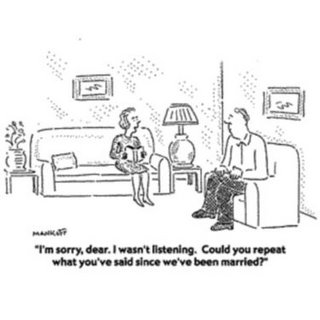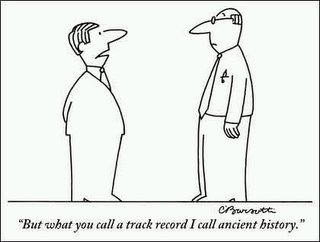
Tons of literature is generated on this subject in the West every year.
That makes
Adam Phillips ask: "A culture that is obsessed with happiness must really be in despair, mustn't it? Otherwise why would anybody be bothered about it at all? It's become a preoccupation because there's so much unhappiness. The idea that if you just reiterate the word enough and we'll all cheer up is preposterous."
Most troubling aspect is - nations are getting wealthier not happier.
Here is another take by a practitioner of that dismal science- economics :
Paul Krugman.
MONEY CAN'T BUY HAPPINESS. ER, CAN'T IT?CAMBRIDGE, Mass. -- A few weeks ago my wife and I finally gave in to the pressures of modern life and acquired a cell phone. But it turned out that once we had the thing we had a few questions -- questions we couldn't get answered, because customer service was swamped with similar calls from the thousands of other people who had recently signed on.
Meanwhile, my parents started calling contractors about some minor work on their house -- only to be told that every carpenter and plumber in the area was booked well into next year.
Talk to almost any middle-class American, and you will hear similar stories -- about poor service, excessive traffic, overpriced housing and so on. In fact, there seems to be a sort of rising chorus of complaints about the annoyances of prosperity -- complaints, in effect, that spending lots of money isn't as gratifying as people expected it to be. Most of this is petty stuff, but it is just possible that the chorus of complaints marks the beginning of a broader shift in attitudes -- a shift that will be healthy if it doesn't come too quickly.
Of course, people don't complain about the disappointments of prosperity unless they are prosperous, and in a way all this whining is a symptom of a remarkably successful era in American economic history. Still, you don't have to be an ascetic to wonder if there isn't something a bit manic about the pace of getting and -- especially -- spending in fin-de-siècle America.
Even the dry statistics suggest that something a little strange is going on. Consider: we are now eight years into an economic expansion. Consumer spending traditionally lags behind the economy as a whole in boom times, because families figure that times will not always be that good and that they should save for a rainy day.
This time, however, consumers are leading the charge: while the economy expanded an impressive 4 percent between the first quarter of 1998 and the first quarter of 1999, consumption grew 5.5 percent, and spending on consumer durables -- cell phones, bathroom fixtures, S.U.V.'s and home entertainment systems -- surged an incredible 12 percent.
There are at least two reasons to question whether America's consumption boom is really a good thing.
One is that by conventional standards, the typical American family is being a bit, well, imprudent in spending so much -- indeed, personal savings, never high in this country, have now disappeared almost completely. True, millions of families have seen their wealth surge because of a soaring stock market, but while more people than ever own stock, most still have no significant personal stake in the market.
You might argue that ordinary families are spending freely, despite sluggish wage growth, because they believe that prosperity is here to stay. But survey evidence suggests that many workers remain nervous about job security, a nervousness that manifests itself in a surprising reluctance to demand wage increases.
So why is spending so high? Much of the surge is driven by those families that do own a lot of stock and have been willing to treat recent capital gains not only as durable but as likely to continue. And at least some of the rest is the result of what Robert Frank calls luxury fever: families with annual incomes of $30,000 try to emulate the consumption of those with $60,000, who try to emulate those with $120,000, and so on. Ultimately we are all trying to keep up with the Gateses, and some of us really can't afford it.
And this leads to a deeper concern: there is good reason to think that even those consumers who can afford all this spending will eventually find that they can't get no satisfaction. It is hard to talk about this without sounding either moralistic or supercilious, but it turns out that the folk wisdom is backed by hard statistical evidence: you really can't buy happiness, certainly not for society as a whole.
Partly this is because of congestion effects like the ones my family is experiencing: when few people have cars, the one-car family is king, but when everyone has two, a lot of time is spent in traffic jams.
A more important point, probably, is that human beings are hard-wired to judge themselves not by their absolute standard of living, but in comparison to others. It may be true that in material terms today's borderline poor live as well as the upper-middle class did a few decades back, but that does not stop them from feeling poor. And consumer spending ultimately disappoints because of habituation: once you have become accustomed to a given standard of living, the thrill is gone.
But there is one very powerful argument that can be made on behalf of recent American consumerism: not that it is good for consumers, but that it has been good for producers. You see, spending may not produce happiness, but it does create jobs, and unemployment is very effective at creating misery.
Better to have manic consumers, American style, than the depressive consumers of Japan -- a country where the only consumer durables that have sold well the last few years are home safes, the better to hoard cash in.
This attempt to keep up with people richer than ourselves, however ineffectual it may have been on its own terms, has allowed the United States economy to sail through a global financial storm unscathed, and arguably made the difference between a global wobble and a repeat of the 1930's.
There is a strong element of rat race in America's consumer-led boom, but those rats racing in their cages are what have kept the wheels of commerce turning. And while it will be a shame if Americans continue to compete over who can own the most toys, the worst thing of all will be if the competition comes to a sudden stop.
Now there are faint hints in popular culture -- though certainly not yet in the spending numbers -- that Americans are starting to become disillusioned with high consumption, that in years to come the American consumer will become wiser and more prudent. Let's hope it really happens -- but not too fast.
 Artist : Robert Mankoff Published : The New Yorker February 21, 2000
Artist : Robert Mankoff Published : The New Yorker February 21, 2000


